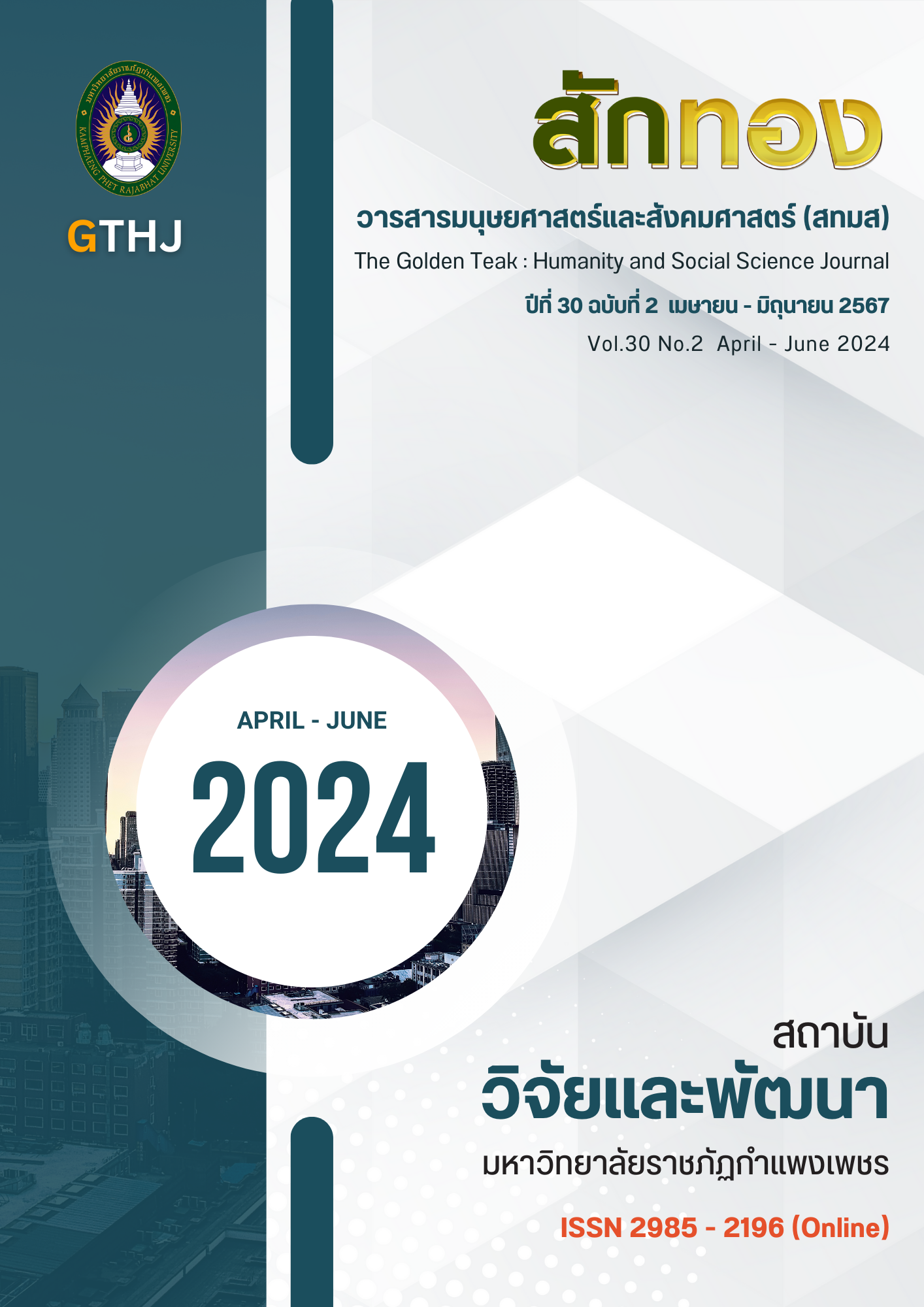Development of Curriculum Administration System for Bachelor of Education Program in Chinese of Rajabhat Universities in the Upper Northern Region
Main Article Content
Abstract
The objectives of this research were to investigate current and derisible contexts of educational curriculum administration, Chinese Program, of Rajabhat University Group in the upper northern region, to examine the factors related to and development guidelines for the educational curriculum administration system, to develop and verify the system, and to assess the educational curriculum administration system. The informants consisted of administrators, Chinese teachers, educational undergraduate students in Chinese program, and individuals involved in the Chinese program in four universities in the upper northern region. The research instruments comprised a questionnaire, focus–group discussion agenda, a workshop, and an assessment form. The quantitative data were statistically analyzed for percentage, mean, and standard deviation. The qualitative data were synthesized, summarized, and presented descriptively. The research results revealed that, for the current contexts of the curriculum administration, curriculum implementation, curriculum implementation, monitoring and supervision of curriculum implementation, and curriculum assessment were generally at a high level, and the desirable contexts were also at a high level. The factors related to the development of the curriculum administration system comprised four aspects of internal factors, which included personnel with nine sub–factors, budget with six sub–factors, administration with 12 sub–factors, and facilities with four sub–factors; and four aspects of external factors, which included society with seven sub–factors, technology with six sub–factors, economy with four sub–factors, and politics with six sub–factors. The guidelines for developing the curriculum administration system consisted of four components. Firstly, curriculum planning should focus on studying and analyzing data, establishing networks among universities and domestic and international specialists, having activities and programs for students to practice and sharpen their skills and experiences, Secondly, curriculum implementation should emphasize the promotion and development of personnel, integrated knowledge between teachership and major subjects, and implementation of assessment results for development. Thirdly, monitoring and supervision of curriculum implementation should focus on collaborative planning among concerned individuals, reports on result–based improvement of systems and mechanisms, formation of criteria, and scrutiny of supervision and monitoring results from various sectors. Finally, curriculum assessment should emphasize specification of guidelines and criteria, assessment by specialized and suitable committee, and summary and report of assessment results. The curriculum administration system was composed of seven components. The verification results revealed that the accuracy and propriety of the system passed the predetermined criteria. The assessment results of the system revealed that its feasibility was at a high level and its utility was at the highest level.
Article Details

This work is licensed under a Creative Commons Attribution-NonCommercial-NoDerivatives 4.0 International License.
บทความที่ได้รับการตีพิมพ์เป็นลิขสิทธิ์ของวารสาร สักทอง : วารสารมนุษยศาสตร์และสังคมศาสตร์ สถาบันวิจัยและพัฒนา มหาวิทยาลับราชภัฏกำแพงเพชร
ข้อคิดเห็นใดๆ ที่ปรากฎในวารสารเป็นวรรณกรรมของผู้เขียนโดยเฉพาะ ซึ่งมหาวิทยาลัยราชภัฏกำแพงเพชรและบรรณาธิการไม่จำเป็นต้องเห็นด้วย
References
Akkhasriworachote, A. (2018). Research on the construction of undergraduate major in Chinese education in Thailand. PhD thesis, Minzu University of china.
Chanwattanawong, R. (2014). Teaching materials-curriculum development course. [Online]. Available : https://arit.dusit.ac.th/documents/catalog/view/8 [2022, June 6]. [In Thai]
Education Reform Commission. (2020) THE NATIONAL REFORM PLANS EDUCATION (revised version), Royal Gazette. [Online]. Available : https://lamphuncity.go.th/wp [2022, June 6]. [In Thai]
Insombat, B. & Neramitra, P. (2020, May-August). The Development of Higher Education Curriculum that Conforms with Country Development to Thailand 4.0: A Case Study of Nakhon Sawan Rajabhat University. Rajabhat Maha Sarakham University Journal (RMU. J), 14(2), 159-170. [In Thai]
Meekhamthong, P. & Saenpong, K. (2562) Techniques for Analyzing Development Conditions for Strategic Planning of School. NEU Academic and Research Journal, 9(3), 111-120. [In Thai]
Office of the Education Council. (2016) Research report for the development of Chinese language teaching in Thailand. [Online] Available : www.onec.go.th [2022, June 6]. [In Thai]
Tangpakorn, B. (2020, May-August). Competence Development in Designing Chinese Instructional Packages of Students Majoring in Chinese Teaching Using a Creative and Productive Learning Model. Journal of Curriculum and Instruction Sakon Nakhon Rajabhat University, 12(34), 21-31. [In Thai]
Witchuwaranun, W. & Chaiyapak, P. (2017, September-December). Bachelor of Education Program Evaluation Kamphaeng Phet Rajabhat University. The Golden Teak: Humanity and Social Science Journal (GTHJ), 23(3), 39-51. [In Thai]
Wongwanich, S. (2007), The research of need Assessment. (2 nd ed). Bangkok : Publisher of Chulalongkorn University. [In Thai]


